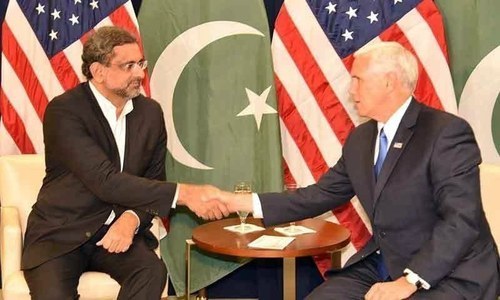The Trump administration's attempt at “humiliating and penalising” Pakistan for allegedly failing to take decisive action against militant groups hostile to the US is unlikely to work, former American ambassador to Pakistan Richard Olson has argued, warning that Islamabad has greater leverage over Washington than is usually perceived.
“Pakistan, like most countries, reacts very badly to public attempts to force its hand. It is likely to respond by showing how it can truly undercut our position in Afghanistan,” wrote Olson, who also served as the US special representative for Afghanistan and Pakistan, in an op-ed published in the The New York Times on Tuesday.
In his article titled 'How Not to Engage With Pakistan', the former envoy assessed the impact of the US decision to withhold security assistance to Pakistan.
"For the past 16 years our military efforts in landlocked Afghanistan have been dependent on transit through and especially overflight of Pakistani territory," he said. "Absent an implausible similar arrangement with Iran, other options are not good."
"Without Pakistani cooperation, our [US] army in Afghanistan risks becoming a beached whale," he argued.
Giving historical background of Pakistan's policy decisions, Olson noted that Pakistan's security concerns emanating from its perception of India as an "existential threat" had led to its adoption of asymmetric military solutions, such as the alleged use of proxies.
Conceding that the US too had supported some of these proxies in the 1980s against the Soviets in Afghanistan, the diplomat said Pakistan "never had an easy option of breaking with Afghan militants".
Olson said during his time as ambassador he had persistently tried to convince Pakistan that it had to choose between its relationship with the US and that with the Taliban, but he "never got any purchase".
"The generals knew that as long as the United States maintained an army in Afghanistan, it was more dependent on Pakistan than Pakistan was on it."
The harsh truth, Olson said, was that American leverage over both Islamabad and Rawalpindi (a reference to the civilian government and the military, respectively) has been declining.
“And as United States aid levels have diminished ... aid from the Chinese has increased,” he wrote, noting China's investment of $62 billion in Pakistani infrastructure under the China-Pakistan Economic Corridor (CPEC).
“Its [CPEC's] magnitude and its transformation of parts of Pakistan dwarf anything the United States has ever undertaken,” the former US envoy wrote.
"Thus, the Trump administration’s attempt at humiliating and penalising Pakistan is unlikely to work."
The former ambassador said a more logical course of action for the US is to hold private talks with Pakistan to discourage its alleged support for militant groups. A diplomatic initiative should be started to bring an end to the Afghan conflict by opening talks with the Taliban, he suggested.
"The path of the tweet and highly public aid cuts is not a method that will engender success," he said, in a reference to Trump's tweet in which he alleged that Pakistan has given the US "nothing but lies and deceit".













































